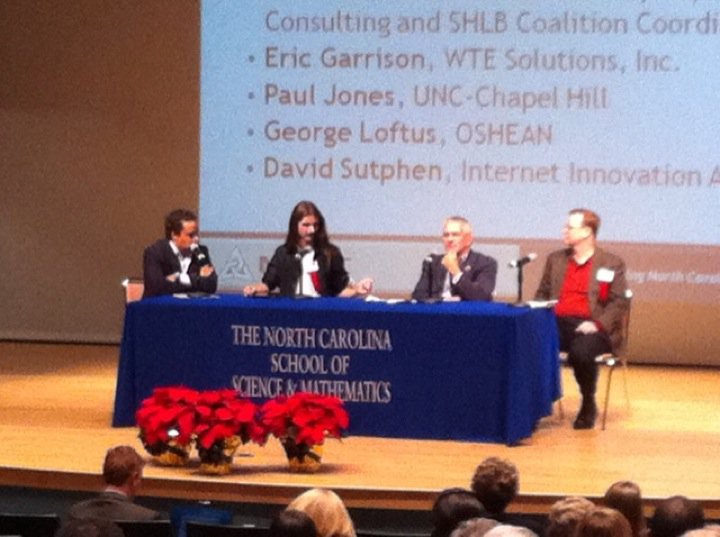The end of last week, I spoke at two different venues about Net Neutrality trying to make the case and to help clarify what the suggestions that we sent to the FCC earlier.
I was to be on a panel at North Carolina Research and Education Network’s Community Day. I almost missed it tho. The dentist put me in the x-ray room and left me there for far too long. No the x-ray wasn’t on the whole time, but I couldn’t just run out through those lead lined walls. Luckily the event was being held at the North Carolina School of Science and Math. Tucker and I were in touch via Twitter as were Mark Johnson, the panel organized, and Joel Dunn of UNC – Greensboro. I gave Mark a warning of my delay. I sent some of the material that I planned to reference to Joel. And the two to them drafted Tucker to join the panel using my materials and whatever rants discussions about Net Neutrality he could remember having with me. Then they billed him as @smalljones2.0.
He did a fine job as you can see here (start at about 1:06 into the stream)
—–
The next day, I joined UNC Law’s Andrew Chin and UNC System attorney David Harrison on a panel about Internet Regulation for the UNC Scholars Program. I had been handed some great material by accident by some of my panel members from the day before — unintentional on their part — “Give us the right to sell tiered, metered services or illegal music traders will kill your grandmother!” They meant that telemedicine should have some sort of engineered preference over day BitTorrent, but things quickly degenerated into hysterically outrageous rhetoric. The result is this brief Prezi:





Recent Comments